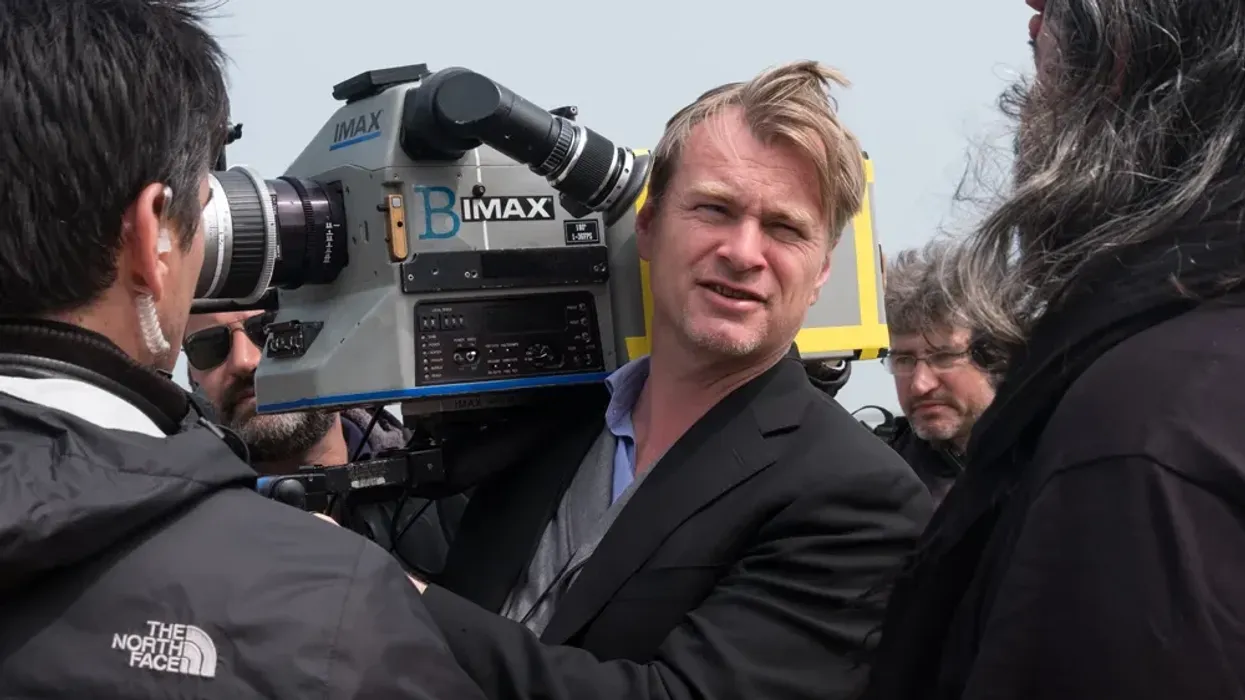Nolan Thinks We're Close To a ‘Post-Franchise, Post-IP Landscape for Movies’
Oppenheimer's success can hopefully change the landscape of cinema.

Christopher Nolan on Oppenheimer
The story of 2024 was the massive success of both Barbie and Oppenheimer. Both of those movies crossed the billion-dollar mark despite being released on the same day. And each of them became the lynchpin in the discussion of where Hollywood will go next.
Babie marked the obvious hit, a noisy piece of intellectual property with a built-in audience. That doesn't take away from its success at all—it just marks what Hollywood was prioritizing at the time.
Oppenheimer was the gamble. Sure, it had Christopher Nolan at the helm directing, but it was also a three-hour, R-rated biopic that was a bit depressing.
Well, as Nolan explained on the Countdown to the BAFTAS podcast, his movie defying expectations may mark a change in Hollywood.
Nolan said, "Everybody has a tendency to talk down the movie business. Really for the whole time I think I've been working in, in movies, I felt the sort of cultural establishment, always predicting the demise of movie theaters and, and of it and I now get asked that question, you know, what do I think about the health of the movie business? And I, I'm like, I don't really know how to respond. We just released a three hour R-rated film about quantum physics and it made a billion dollars. Like, what? Obviously, obviously our view is that the audience is there and they're excited to see something new."
I think Nolan is right. The majority of the audience headed into Oppenheimer wanted to see something different, but also be challenged by a film.
Sure, there were lots of fans of the director, but the movie is a complex discussion of quantum physics and morality in times of war. It pushes the audience to see one man's point of view and really take in the weight on his shoulders during World War II.
So, what does Nolan think this means?
He said, "I think the success of Oppenheimer certainly points to a sort of post franchise, post IP landscape for movies it’s kind of encouraging. It reminds the studios that there is an appetite for something people haven't seen before or an approach to things that people haven't seen before."
That appetite is definitely there, but we need studios to see this and try to capitalize on it as well. We need them to prioritize screenplays not based on popular properties, but that might give the audience something new and exciting.
If we can get things to watch, and not just "content" but actual good movies they can talk about and engage with, we may be able to turn the tides for what's being made. and get more jobs in play as new voices and visions begin to emerge.
Let me know what you think in the comments.
- What Lessons Should Hollywood Learn From Barbenheimer? ›
- Christopher Nolan Tells Us Why 'Oppenheimer' Was Told Through a Singular Point of View ›
- PTA Says The 'Oppenheimer' Theatrical Run is "Nature's Way of Healing" ›
- Is the Future of Cinema IMAX and Large Formats? ›











